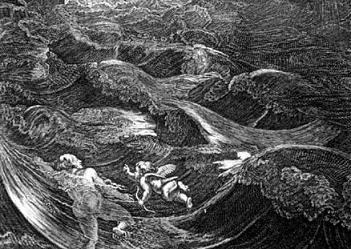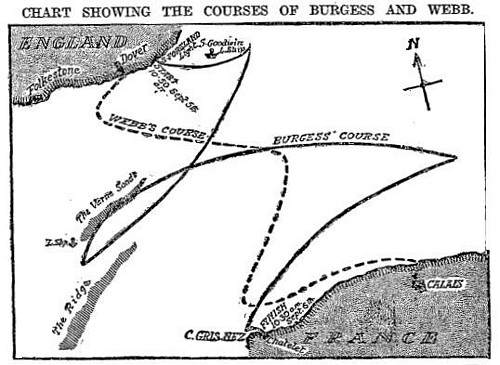|
Alberto Conrad
Alberto Conrad Machuca (born March 26, 1910, date of death unknown) was a Bolivian Freestyle swimming, freestyle Swimming (sport), swimmer who competed in the 1936 Summer Olympics. He was the first ever Olympic competitor for Bolivia and the Bolivian flag bearer at the Berlin Games. During the swimming competitions, he was eliminated in the first round of the Swimming at the 1936 Summer Olympics - Men's 100 metre freestyle, 100 metre freestyle event. External linksAlberto Conrad's profile at Sports Reference.com 1910 births Year of death missing Bolivian male swimmers Olympic swimmers for Bolivia Swimmers at the 1936 Summer Olympics 20th-century Bolivian sportsmen {{Bolivia-swimming-bio-stub ... [...More Info...] [...Related Items...] OR: [Wikipedia] [Google] [Baidu] |
Bolivia
Bolivia, officially the Plurinational State of Bolivia, is a landlocked country located in central South America. The country features diverse geography, including vast Amazonian plains, tropical lowlands, mountains, the Gran Chaco Province, warm valleys, high-altitude Andean plateaus, and snow-capped peaks, encompassing a wide range of climates and biomes across its regions and cities. It includes part of the Pantanal, the largest tropical wetland in the world, along its eastern border. It is bordered by Brazil to the Bolivia-Brazil border, north and east, Paraguay to the southeast, Argentina to the Argentina-Bolivia border, south, Chile to the Bolivia–Chile border, southwest, and Peru to the west. The seat of government is La Paz, which contains the executive, legislative, and electoral branches of government, while the constitutional capital is Sucre, the seat of the judiciary. The largest city and principal industrial center is Santa Cruz de la Sierra, located on the Geog ... [...More Info...] [...Related Items...] OR: [Wikipedia] [Google] [Baidu] |
Freestyle Swimming
Freestyle is a category of Swimming (sport), swimming competition, defined by the rules of World Aquatics, in which competitors are subject to only a few limited restrictions on their swimming stroke. Freestyle races are the most common of all swimming competitions, with distances beginning with and reaching , also known as the mile. The term 'freestyle stroke' is sometimes used as a synonym for 'front crawl', as front crawl is the fastest surface swimming stroke. It is now the most common stroke used in freestyle competitions. The 1896 Summer Olympics, first Olympics Swimming at the 1896 Summer Olympics, held open water swimming events, but after a few Olympic Games, closed water swimming was introduced. The front crawl or freestyle was the first event that was introduced. Technique Freestyle swimming implies the use of legs and arms for competitive swimming, except in the case of the Individual Medley, individual medley or Medley relay (athletics), medley relay events. Th ... [...More Info...] [...Related Items...] OR: [Wikipedia] [Google] [Baidu] |
Swimming (sport)
Swimming is an individual or team Racing, racing sport that requires the use of one's entire body to move through water. The sport takes place in Swimming pool, pools or open water (e.g., in a sea or lake). Competitive swimming is one of the most popular Olympic sports, with varied distance events in Butterfly stroke, butterfly, backstroke, breaststroke, Freestyle swimming, freestyle, and individual medley. In addition to these individual events, four swimmers can take part in either a freestyle or medley Relay race, relay. A medley relay consists of four swimmers who will each swim a different stroke, ordered as backstroke, breaststroke, butterfly and freestyle. Swimming each stroke requires a set of specific techniques; in competition, there are distinct regulations concerning the acceptable form for each individual stroke. There are also regulations on what types of swimsuits, caps, jewelry and injury tape that are allowed at competitions. There are many health benefits to ... [...More Info...] [...Related Items...] OR: [Wikipedia] [Google] [Baidu] |
1936 Summer Olympics
The 1936 Summer Olympics (), officially the Games of the XI Olympiad () and officially branded as Berlin 1936, were an international multi-sport event held from 1 to 16 August 1936 in Berlin, then capital of Nazi Germany. Berlin won the bid to host the Games over Barcelona on the 29th IOC Session on 26 April 1931. The 1936 Games marked the second and most recent time the International Olympic Committee gathered to vote in a city bidding to host those Games. Later rule modifications forbade cities hosting the bid vote from being awarded the games. To outdo the 1932 Summer Olympics, 1932 Los Angeles Games, Adolf Hitler had Olympiastadion (Berlin), a new 100,000-seat track and field stadium built, as well as six gymnasiums and other smaller arenas. The Games were the first to be Fernsehsender Paul Nipkow, televised, with radio broadcasts reaching 41 countries.Rader, Benjamin G. "American Sports: From the Age of Folk Games to the Age of Televised Sports", 5th ed. Filmmaker Leni Ri ... [...More Info...] [...Related Items...] OR: [Wikipedia] [Google] [Baidu] |
Swimming At The 1936 Summer Olympics - Men's 100 Metre Freestyle
Swimming is the self-propulsion of a person through water, such as saltwater or freshwater environments, usually for recreation, sport, exercise, or survival. Swimmers achieve locomotion by coordinating limb and body movements to achieve hydrodynamic thrust that results in directional motion. Newborns can instinctively hold their breath underwater and exhibit rudimentary swimming movements as part of a survival reflex. Swimming requires endurance, skill and efficient techniques to maximize speed and minimize energy consumption. Swimming is a popular activity and competitive sport where certain techniques are deployed to move through water. It offers numerous health benefits, such as strengthened cardiovascular health, muscle strength, and increased flexibility. It is suitable for people of all ages and fitness levels. Swimming is consistently among the top public recreational activities, and in some countries, swimming lessons are a compulsory part of the educational curriculum. ... [...More Info...] [...Related Items...] OR: [Wikipedia] [Google] [Baidu] |
1910 Births
Events January * January 6 – Abé language, Abé people in the French West Africa colony of Côte d'Ivoire rise against the colonial administration; the rebellion is brutally suppressed by the military. * January 8 – By the Treaty of Punakha, the Himalayan kingdom of Bhutan becomes a protectorate of the British Empire. * January 11 – Charcot Island is discovered by the Antarctic expedition led by French explorer Jean-Baptiste Charcot on the ship ''Pourquoi-Pas (1908), Pourquoi Pas?'' Charcot returns from his expedition on February 11. * January 12 – Great January Comet of 1910 first observed (perihelion: January 17). * January 15 – Amidst the constitutional crisis caused by the House of Lords rejecting the People's Budget the January 1910 United Kingdom general election is held resulting in a hung parliament with neither Liberals nor Conservatives gaining a majority. * January 21 – 1910 Great Flood of Paris, The Great Flood of Paris begins when the Seine over ... [...More Info...] [...Related Items...] OR: [Wikipedia] [Google] [Baidu] |
Year Of Death Missing
A year is a unit of time based on how long it takes the Earth to orbit the Sun. In scientific use, the tropical year (approximately 365 solar days, 5 hours, 48 minutes, 45 seconds) and the sidereal year (about 20 minutes longer) are more exact. The modern calendar year, as reckoned according to the Gregorian calendar, approximates the tropical year by using a system of leap years. The term 'year' is also used to indicate other periods of roughly similar duration, such as the lunar year (a roughly 354-day cycle of twelve of the Moon's phasessee lunar calendar), as well as periods loosely associated with the calendar or astronomical year, such as the seasonal year, the fiscal year, the academic year, etc. Due to the Earth's axial tilt, the course of a year sees the passing of the seasons, marked by changes in weather, the hours of daylight, and, consequently, vegetation and soil fertility. In temperate and subpolar regions around the planet, four seasons are ... [...More Info...] [...Related Items...] OR: [Wikipedia] [Google] [Baidu] |
Bolivian Male Swimmers
Bolivian may refer to: * Something of, or related to, Bolivia ** Bolivian people ** Demographics of Bolivia ** Culture of Bolivia Bolivia is a country in South America, bordered by Brazil to the north and east, Paraguay and Argentina to the south, Chile to the west, and Peru to the west. The cultural development of what is now Bolivia is divided into three distinct peri ... * SS ''Bolivian'', later SS ''Alfios'', a British-built standard cargo ship {{disambiguation ... [...More Info...] [...Related Items...] OR: [Wikipedia] [Google] [Baidu] |
Olympic Swimmers For Bolivia
Olympic or Olympics may refer to Sports Competitions * Olympic Games, international multi-sport event held since 1896 ** Summer Olympic Games ** Winter Olympic Games * Ancient Olympic Games, ancient multi-sport event held in Olympia, Greece between 776 BC and 393 AD * Olympic (greyhounds), a competition held annually at Brighton & Hove Greyhound Stadium Clubs and teams * Adelaide Olympic FC, a soccer club from Adelaide, South Australia * Fribourg Olympic, a professional basketball club based in Fribourg, Switzerland * Sydney Olympic FC, an Australian soccer club * Olympic Club (Barbacena), a Brazilian football club based in Barbacena, Minas Gerais state * Olympic Mvolyé, a Cameroonian football club based in Mvolyé * Olympic Club (Egypt), a football and sports club based in Alexandria * Blackburn Olympic F.C., an English football club based in Blackburn, Lancashire * Rushall Olympic F.C., an English football club based in Rushall * FC Olympic Tallinn, an Estonian fo ... [...More Info...] [...Related Items...] OR: [Wikipedia] [Google] [Baidu] |
Swimmers At The 1936 Summer Olympics
Swimming is an individual or team racing sport that requires the use of one's entire body to move through water. The sport takes place in pools or open water (e.g., in a sea or lake). Competitive swimming is one of the most popular Olympic sports, with varied distance events in butterfly, backstroke, breaststroke, freestyle, and individual medley. In addition to these individual events, four swimmers can take part in either a freestyle or medley relay. A medley relay consists of four swimmers who will each swim a different stroke, ordered as backstroke, breaststroke, butterfly and freestyle. Swimming each stroke requires a set of specific techniques; in competition, there are distinct regulations concerning the acceptable form for each individual stroke. There are also regulations on what types of swimsuits, caps, jewelry and injury tape that are allowed at competitions. There are many health benefits to swimming, but it is possible for competitive swimmers to incur injurie ... [...More Info...] [...Related Items...] OR: [Wikipedia] [Google] [Baidu] |





